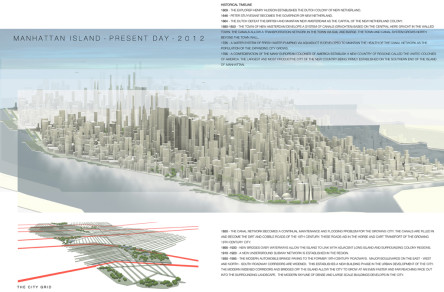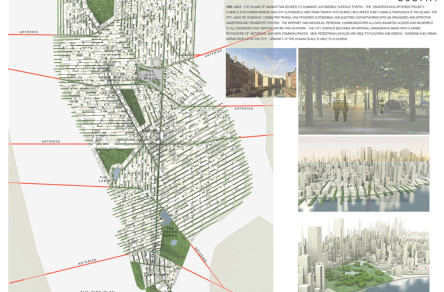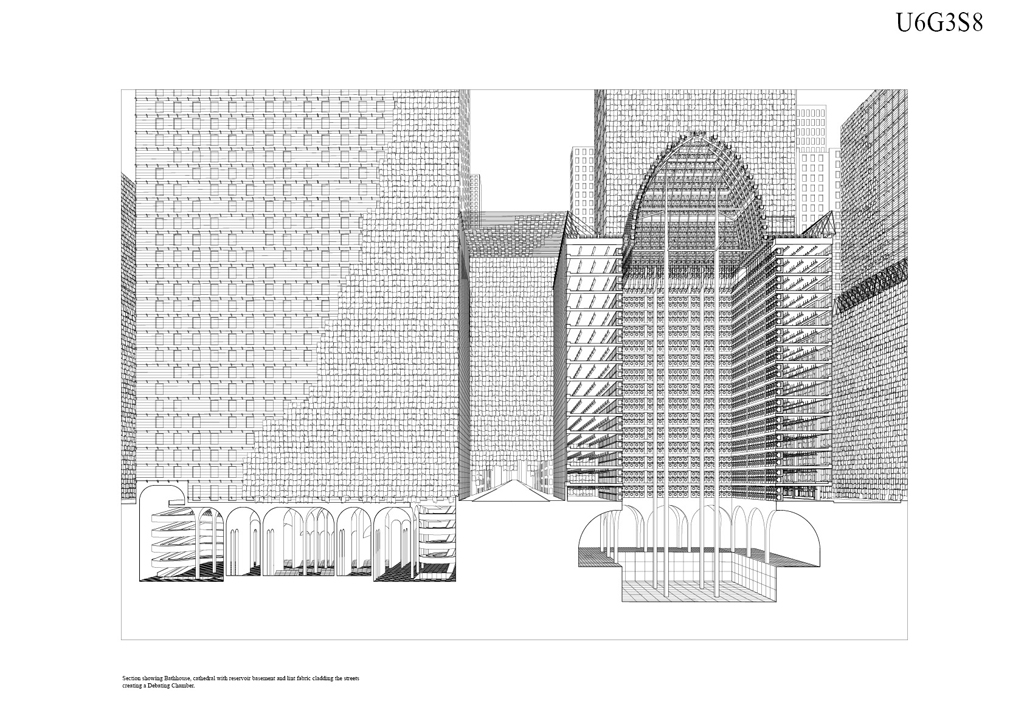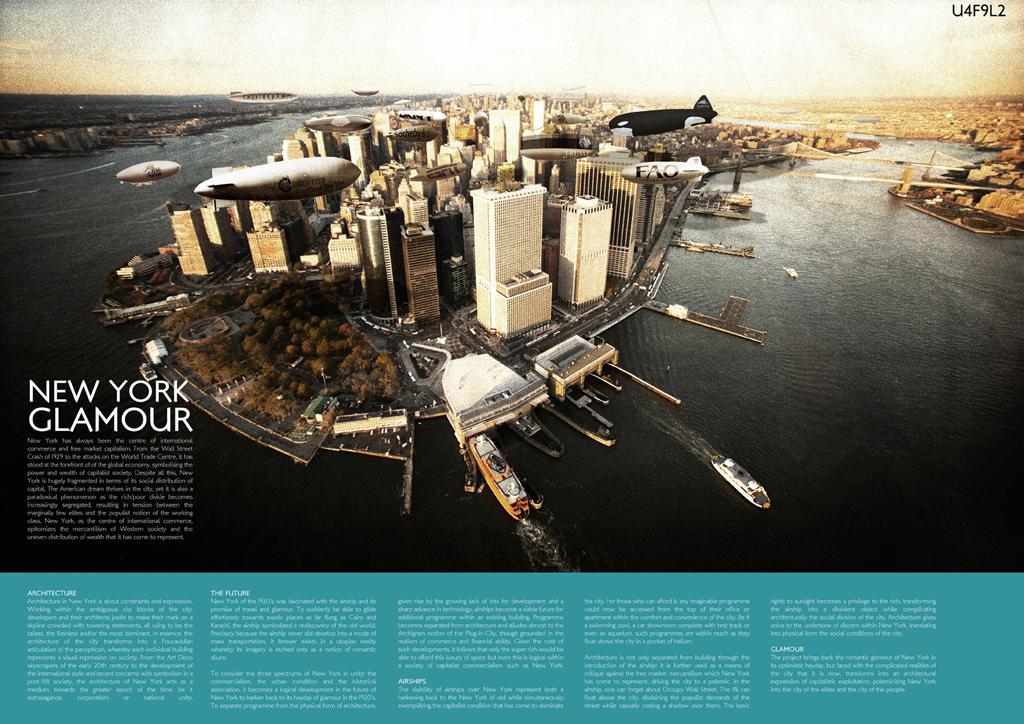Info:
Title: MANHATTAN ISLAND - Code: U5S7A1Contest: NY / 2012
By: D. Griffin
Views: 4007 Likes: 0
Votes:
JOSHUA PRINCE-RAMUS3 EVA FRANCH I GILABERT2 ROLAND SNOOKS4 SHOHEI SHIGEMATSU1 ALESSANDRO ORSINI1 MITCHELL JOACHIM52.7
MANHATTAN ISLAND

 Historical Timeline 1609 – The explorer Henry Hudson establishes the Dutch colony of New Netherland. 1646 – Peter Stuyvesant becomes the governor or New Netherland. 1664 – The Dutch defeat the British and maintain New Amsterdam as the capital of the New Netherland Colony. 1680-1850 – The town of New Amsterdam develops a system of canals (Grachten) based on the central Here Gracht in the walled town. The canals allow a transportation network in the town via sail and barge. The town and canal system grows north beyond the town wall. 1725 – A water system of fresh water pumping via aquaduct is developed to maintain the health of the canal network as the population of the expanding city grows. 1755 – A Confederation of the many European Colonies of America establish a new country of regions called The United Colonies of America. The largest and most productive city of the new country being firmly established on the southern end of the island of Manhattan. 1850 – The canal network becomes a continual maintenance and flooding problem for the growing city. The canals are filled in and become the dirt and cobble roads of the 19th Century. These roads aid in the horse and cart transport of the growing 19th century city.
Historical Timeline 1609 – The explorer Henry Hudson establishes the Dutch colony of New Netherland. 1646 – Peter Stuyvesant becomes the governor or New Netherland. 1664 – The Dutch defeat the British and maintain New Amsterdam as the capital of the New Netherland Colony. 1680-1850 – The town of New Amsterdam develops a system of canals (Grachten) based on the central Here Gracht in the walled town. The canals allow a transportation network in the town via sail and barge. The town and canal system grows north beyond the town wall. 1725 – A water system of fresh water pumping via aquaduct is developed to maintain the health of the canal network as the population of the expanding city grows. 1755 – A Confederation of the many European Colonies of America establish a new country of regions called The United Colonies of America. The largest and most productive city of the new country being firmly established on the southern end of the island of Manhattan. 1850 – The canal network becomes a continual maintenance and flooding problem for the growing city. The canals are filled in and become the dirt and cobble roads of the 19th Century. These roads aid in the horse and cart transport of the growing 19th century city.
1890 -1930 – New bridges over waterways allow the island to link with adjacent Long Island and surrounding Colony Regions. 1910 -1920 – A new underground subway network is established in the region. 1930 -1995 – The modern automobile brings paving to the former 19th Century roadways. Major Boulevards on the east – west and north – south roadway corridors are widened. This establishes a new building phase in the urban development of the city. The modern widened corridors and bridges off the island allow the city to grow at an even faster and far reaching pace out into the surrounding landscape. The modern skyline of dense and large scale buildings develops in the city. 1995 -2012 – The Island of Manhattan decides to eliminate automobile surface traffic. The ‘Underground Arteries Project’ tunnels the former bridge and city automobile and train traffic into buried high speed tube tunnels throughout the island. The city links its subways, commuter trains, gas powered automobile and electric car networks into an organized and effective underground transport system. The Internet and individual personal communicators allows unlimited access and movement to all residents and visitors within this network. The city surface becomes an arterial ‘Greenspace’ mixed with a dense patchwork of historical and new common spaces. New pedestrian locales are able to flourish and enrich. Gardens and urban farms develop in the city. Urbanity at the human scale is able to flourish.






